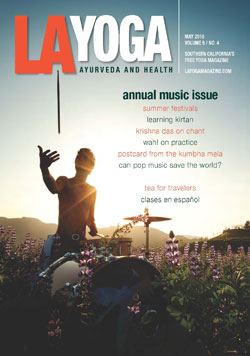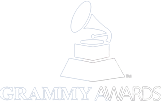Home Frank’s Blog Can Pop Music Save the World?
Can Pop Music Save the World?
Frank Fitzpatrick 08/16/2010

|
No time to read? Pick your language & press PLAY
Getting your Trinity Audio player ready...
|
I would like to share an article with you that I was asked to write for LA Yoga magazine’s special music issue. It is a bit longer than my usual blog, but right in line with what I am try trying to do through EarthTones and my music and film work. I hope you enjoy the article: Can Popular Music Heal The World?
(pop-u-lar: appealing to or appreciated by a wide range of people)
 “Every child is born the same way, not as a conflict of color but as a human being with a role to play on the planet. So we rejoice and do everything to make the future of that child be the best.” –– Angelique Kidjo describing the meaning behind her bilingual pop song “Salala” to collaborator Peter Gabriel.
“Every child is born the same way, not as a conflict of color but as a human being with a role to play on the planet. So we rejoice and do everything to make the future of that child be the best.” –– Angelique Kidjo describing the meaning behind her bilingual pop song “Salala” to collaborator Peter Gabriel.
Judith is beautiful sixteen-year-old Sudanese girl living in Portland, Maine, who, as a younger child and in the arms of her pregnant mother, narrowly escaped the horrors of her war-torn homeland. I’ll never forget the Sunday afternoon when Judith shared her dreams for a more peaceful world and sang for me as a proud member of Pihcintu, a multicultural children’s choir comprised of thirty-five teenage girls (mostly adopted orphans and refugees) from seventeen different countries. I recorded the group as part of a campaign for the United Nations Special Rapporteur on Disability, to raise awareness of the effect of weapons of war and the growing handicapped population in the Middle East. Collaborating with one of the leading Arabic-speaking hip hop artists, a highly educated and socially outspoken MC from Lebanon named Rayess Bek, we created a bilingual song and music video called Just Like You.
Our collective goal was to reach millions of young people across several Arab-speaking countries and help break down some of the stereotypes and misunderstandings that far too often lead to unnecessary violence and cultural divides. We hoped that if people of different cultures could look at each other through the eyes of their children and recognize these same underlying qualities in all children around the world, mutual compassion for one another would increase, leaving us less inclined to view those unseen and misunderstood as the enemy.
During a television interview following the recording, the show’s host asked me this essential question: “In a region wrought with a history of so much war and hatred, can a song really make a difference?”
Can a Song Make a Difference?
We all know that listening to a great piece of music or one of our favorite songs can immediately transform our energy and our state of mind. Hearing even a few bars of a familiar tune can trigger us to recall cherished memories, reopen unhealed wounds or even get up and dance. Music and sound vibration affect our brains, emotional states, senses of identity, nervous systems and the health and development of the very cells in our bodies.
But can music really be a catalyst for helping to influence large groups of people, even entire cultures, in a way that could bring the world into greater balance? Like many, I not only believe it can do so, but I see music as an essential component for the conscious awakening of the human race and the well-being of our planet.
Now, I don’t mean to claim that music can feed the hungry, cure epidemic diseases, reverse overpopulation or prevent global warming. But music can help us as individuals to better cope with these external challenges and inspire us as a global community to come together in a more harmonious fashion.
Pop Music and Our Youth
As a boy growing up in Detroit during the heart of the Motown era, music became my lifeline. From the time I cut my first Jackson 5 single from the back of a cereal box to watching those girls swoon down my elementary school hallway to Al Green’s “Love and Happiness” or wearing out the vinyl on my first copy of Marvin Gaye’s “What’s Going On?” the soundtrack to my youth inspired the dream that one day I, too, would touch people’s lives with music.
Although I’ve been blessed to realize that dream many times since then, one poignant moment took place recently in downtown LA’s Staples Center. I was standing offstage for the closing show of the High School Musical Tour, gazing out at nearly 20,000 screaming kids and a few brave parents. The concert opened with teen star Jordan Pruitt singing my title song from the Disney film Jump In! I removed my earplugs (strategically placed before the show to protect me from the piercing volume of the girls’ screams), only to hear thousands of those same young fans singing along to every word and note I had written. Despite any doubts that the challenges of the music industry might have planted in my mind over the years, that moment crystallized for me the undeniable influence of music on young people.
I’m sure most parents can attest to the power of these influences on their own children. You might have a hard time convincing your ten-year-old son or daughter to exercise, learn Yoga, do their homework or clean their room. But you probably will find little resistance to making them listen to hours of their favorite artist’s music, seeing them perform live (happy to lend you my earplugs), or memorizing the lyrics to their songs.
Children and teens are far more receptive to and influenced by the music, media and musical personalities that infuse their lives. While this could prove risky (not all pop stars are to be emulated), I see a tremendous opportunity for using music to help create a better world and a more positive future. From the looks of what we’ve done to the planet, the youth will need all the help they can get.
Music can help young people develop essential tools and internal resources for facing the unforeseen and inevitable challenges that lie ahead. Providing children with music education and opportunities for musical expression, performance and collaboration offers them a chance to have more developed minds, healthier bodies and a greater sense of personal fulfillment and belonging.
This is being publicly demonstrated on a larger scale by programs like El Systema in Venezuela – a national government-supported system of over one hundred youth orchestras and schools that welcome poor children from every corner of the country. The shining star who rose from that system is the Los Angeles Philharmonic’s recently appointed, and youngest musical director, Gustavo Dudamel. Gustavo, the new pop star of classical music, is committed to setting up a similar system in Los Angeles to positively transform the lives of thousands of children and the experience of classical performance for millions worldwide.
Pop Music Touches Yoga
Popular music has also increasingly made its way into Western adaptations of Yoga. It started with the use of contemporary songs in the teaching of asana practices in Yoga studios to create a more inviting and familiar experience for the Western practitioner. And with the growing popularity of kirtan, an increasing number of kirtan and spiritual music artists have been mixing popular musical forms, harmonies, melodies and even English lyrics, with traditional Sanskrit chants into their shows and recordings. Artists like Deva Premal, Jai Uttal, Dave Stringer, Girish, Wah! and even Krishna Das are expanding their audiences and impact in this way.
To reach and inspire an even broader audience in a new benefit CD I just released – Yoga Revolution, I tried to take the work of these artists one step further. Intentionally blurring any lines of genre distinction, I brought together spiritually-infused songs and cross-cultural collaborations by pop music icons like Sting, Seal, Sheryl Crow, Angelique Kidjo and Sarah McLachlan together with spiritually-based artists like Deva Premal, Guru Singh, Donna De Lory and Snatam Kaur.
Expanding traditional forms to reach larger audiences is a trend that has been occurring for many years in other spiritual genres including Gospel and Christian music, both of which have successfully crossed over into pop culture. The result is two-fold: the music inside spiritual communities is adapting itself to the audience and times to become more accessible, and spiritual principles are reaching the ears, minds and hearts of much larger audiences, slowly shifting the undercurrents of popular culture.
Pop Music goes Global
The new generation of conscious musical stars emerging on the global stages of popular music is especially inspiring to me. Their work is often reminiscent of the great musical messengers who rose up within various cultures and regions of the world during the social movements of the 1960s: artists like Bob Marley, Curtis Mayfield, Bob Dylan, Gilberto Gil, John Lennon or Fela Kuti. This new emergence is truly global, as proudly represented by artists like Somalian refugee K’NAAN (check out his anthem for the upcoming World Cup – “Wavin’ Flag”), Nigerian-born Afro-Soul artist Nneka, African-American superstar and AIDS activist Alicia Keys, Haitian-born artist and producer Wyclef Jean and the Jamaican sons of the late, great Bob Marley himself – Damian and Ziggy. Today’s artists, as a result of the increasing globalization of media and new technology, are able to connect to even larger and more diverse audiences, breaking through traditional barriers of race, class, religion and nationality.
Using What We Know
If science has already proven that positive sound vibration contributes to healthy and balanced development at the cellular level, and if history has clearly demonstrated that conscious and popular musical expressions contribute to the positive transformation of the human spirit, both in the individual and society, then the answer to our question, “Can popular music heal the world?” must be yes.
In my attempt to answer that question, however, I leave you with another: “Now that we have this knowledge available to us, what do we do with it?” I believe we must take action by consciously using music in our own lives, in our children’s education and in the development, celebration and unification of a global community. Music, like any expression of consciousness, becomes increasingly relevant when offered for the benefit and evolution of all beings.
I’m here to help YOU create a better world, inside and out.
Contact Me© 2025 Frank Fitzpatrick Website by AllHereIndia












